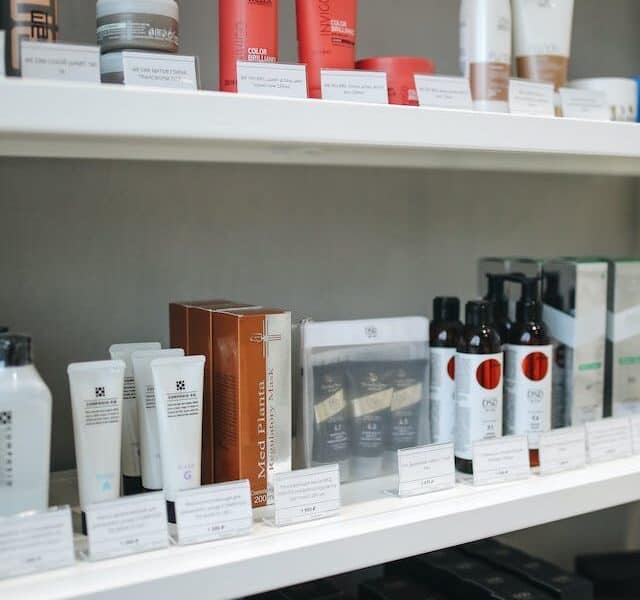From cleansers and moisturizers to serums and exfoliators, there are different types of skin care products available in the market. But with the sheer number of products, not to mention the different ingredients, it can be hard to know which option is best for your skin type.
Whether you have acne-prone, combination, or mature skin, it’s important to use the products best suited to your needs. When you use a product that addresses your unique skin concerns, it is more likely to be effective.
Skin Types and Conditions That They May Encounter

Normal Skin
This is skin with fine pores, healthy circulation, and a smooth texture. With age, it can become drier, which doctors call age-related dryness.
Combination Skin
With combination skin, you can separate your day and night routine. Remember: you don’t have to apply everything everywhere or every time. For example, if your T-zone is oily and the rest of your face is dry, apply acids only to the T-zone and only at night.
Dry Skin
This skin produces less sebum than normal skin. This means that it cannot retain moisture and protect itself from external microbes. People with dry skin may experience flaking, flaky patches, itching, and a feeling of tightness.
Oily Skin
This skin type produces excessive amounts of sebum, sometimes due to hormonal changes, stress, and medications. The skin usually has visible pores and a glossy sheen and may be prone to acne.
Combination Skin
This skin has areas of oily and dry skin. For example, in people with combination skin, the forehead, chin, and nose may be oily, while the cheeks may normally be dry.
Sensitive Skin
People with sensitive skin are more prone to inflammation or adverse reactions. Sensitive skin can be a symptom of conditions such as rosacea or eczema.
Attributes For Every Skin Type

Several factors can help a person choose a skin care product based on their skin type. This includes:
Ingredients
Some ingredients may not be suitable for all skin types as they may irritate. People with sensitive skin should consider choosing products that are free of fragrance, parabens, or sulfates.
Reviews
People can read reviews from other customers to see if a product is right for their skin type or condition.
Personal Habits
These affect how a person takes care of their skin. For example, some products can make the skin more sensitive to sunlight, so they may not be the best option for people who spend a lot of time in the sun.
Skincare For Different Types of Skin

Skin type is the most important factor in determining which skin care products are best for you. There are no bad products, but sometimes people with different skin types use the wrong product that suits their skin type.
You probably guessed it, but those with acne-prone and sensitive skin should be most careful with the various ingredients in their skincare products. For all oily skin types, you are a winner: oily skin can process a wider range of ingredients that can sometimes cause breakouts or irritation on other skin types.
For Oily Skin
The best skincare for oily skin are products that contain alpha hydroxy acids (glycolic or salicylic acid), benzoyl peroxide, and hyaluronic acid. These ingredients effectively control excess sebum production, while hyaluronic acid provides hydration only in the areas needed.
For Dry Skin
The best skincare for dry skin contains shea butter and lactic acid. These ingredients provide hydration and gentle exfoliation to keep dry skin looking radiant.
For Sensitive Skin
Look for products that contain aloe vera, oatmeal, and shea butter. They moisturize well and usually do not irritate anyone.
Ingredients to Avoid


Fragrance/perfume
Added fragrances often cause allergies and skin irritation, and it’s essential to avoid them if you have sensitive skin.
Sulfates
Sulfates are cleansing agents often found in body washes and shampoos. They strip hair and skin of their natural oils, which can irritate.
Parabens
Parabens are commonly added to foods as a chemical preservative to inhibit bacterial growth. They are known to be referred to as estrogen mimics by industry experts, and over time, they can have harmful effects by disrupting hormonal balance.
Natural Doesn’t Always Mean Best
Familiar words on an ingredient list can be comforting, but they don’t always point to the safest way. everyone is unique and you should do what is best for yourself. Seeing the terms “natural” and “organic” on a product label is sometimes more of a marketing gimmick than anything else. sometimes a product will be labelled as natural concerning only one or two of the listed ingredients.
You don’t have to be a walking dictionary to choose different types of skin care products with the right ingredients. Simplify your life with online resources. Patch testing is a good practice in the product removal process. (It’s also a great excuse to take a trip to Ulta or Sephora without spending a fortune.) It’s time to take advantage of these products to test them. A patch test can help determine if certain foods or ingredients cause allergic reactions, irritate the skin, or clog pores.
For more exciting content related to Fashion and Lifestyle, Stay tuned to the Blog!
Love!




